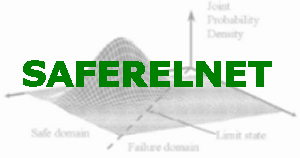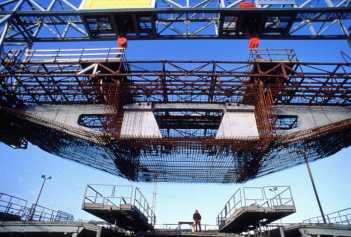 |
 |
 |
 |
| Thematic Network on Safety and Reliability of Industrial Products, Systems and Structures | |||
| quinta-feira, 1 de janeiro de 2026 | |||
       |
| WP 9 - Training and Education | ||||||
|
WP Leader: NTNU Objectives Existing procedures and systems for training and education within safety and reliability are reviewed. Both the industry and university sectors are considered, but with particular focus on the interaction between these sectors. Identification of duplication and lack of co-ordination between training and education in different fields and different sectors is aimed at. Potential benefits from exchange/co-ordination of manuals, course material, exercises, training procedures and evaluation systems are assessed. Optimal utilisation of Information Technology for this purpose is elaborated. Consideration will be given to the possibility of organising short courses in specific topics. Task 9.1 – Training Task leader: NTNU Procedures for training of personnel concerned with risk analysis, risk prevention, risk mitigation, structural reliability analysis, inspection planning, maintenance and repair within the relevant industries are summarised. Within-company training, within-industry training and general types of training shared by different industries are addressed. Focus is set on the potential for improvement in “lagging” areas where the “state-of-practice” is less developed than for more advanced areas. Costs related to such training activities and the potential for achieving synergy effects by exchange/sharing of training packages between different sectors are addressed. The training programme will be assessed by the industrial members of the Consortium. Resources to perform initial training activities will be sought from sources outside the network, and these will be evaluated in order to identify possible modifications. Task 9.2 – Education Task leader: POLIMI Different systems for education within the areas of risk analysis, risk prevention, risk mitigation, structural reliability analysis, inspection and maintenance planning and assessment of residual lifetime are considered. Focus is on education at university level including continuing education courses, but also within-company education is addressed. Particular sectors with highly successful interaction between the industry and university environments are identified. Differences between education in different countries and different departments (corresponding also to different industry sectors) are focused upon. Concepts, topics, procedures, terminology etc. that are shared between different environments are identified. Based on this, a list of topics to be covered by a "core interdisciplinary education" within risk and reliability is established. By making a further selection from this list, the content in one or more “Prototype Education Packages” for exchange between different universities, different departments and industry participants is performed. An example of such a package is developed. Application of Information and Computer Technology e.g. for development of exercises and exchange of course material in such packages will be assessed. Task 9.3 - Application of computer assisted training methods Task leader: WroUT Education and training in reliability and risk assessment problems is hampered by the lack of suitable demonstration material. The probabilistic processes under study are too slow to be observed in traditional laboratory demonstrations. The focus of this task is to develop some computer based training (CBT) modules to be delivered along with the "Prototype Education Packages" under study in Task 9.2. A framework for delivering self-study courseware material using CBT is developed. On the basis of this framework some pilot courseware modules are implemented, including multimedia presentations, simulation models and progress assessment tests. These modules are based on the course contents of some well-identified parts of PEP (available in advance of the timetable for Task 9.2), e.g. "Reliability Fundamentals", "Reliability of Structural Systems". The framework and the pilot implementations are to be exchanged between the universities along with the PEP packages. |
||||||
| (Back) | ||||||
| Home | Overview | Structure | Workplan | Members | Meetings | Login |
| ©
2002 SAFERELNET Optimized for Internet Explorer 5+ |